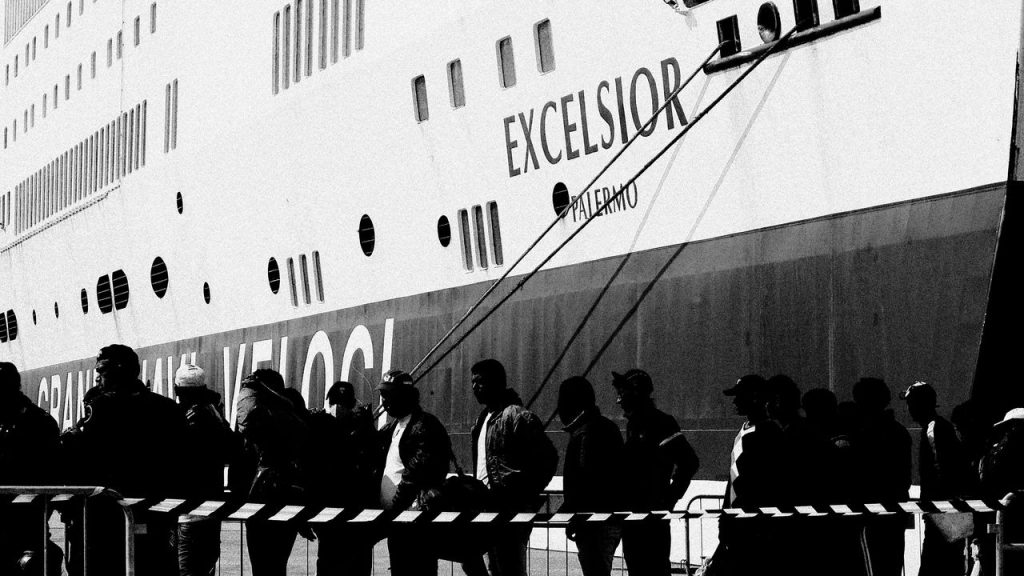All was proceeding well. Morgese’s officers were on the case, and the migrants were behaving in an orderly manner. It was peaceful. A nice cruise in the Mediterranean. No signs of any of the Libyan fighters who Gaddafi threatened would arrive in Europe “like a swarm of locusts or bees.”
At around 11 a.m., a short, middle-aged man—from sub-Saharan Africa, Morgese guessed—approached the Italian Green Beret. Morgese looked like an obvious authority figure—muscular, tan, in camouflage combat fatigues with a green beret and a black holster with a gun.
“Water,” the man said. Part request, part demand.
Morgese had noticed the man before. He had been isolating himself from the others, pacing nervously along a corridor, reading a liturgical book of some sort. He gave the man a bottle of water and a serious look.
The man was thin and short, maybe five feet six inches tall, with heavy-lidded eyes, nostrils that flared, full lips, and a scraggly beard. He had a scar on his arm, one that Morgese recognized as consistent with a gunshot entry wound. In 1998, during an antidrug operation, Morgese had engaged in a firefight with a suspect whose leg was struck by a round from another officer’s Beretta pistol. He was familiar with scars caused by bullets.
Morgese gently grabbed the man’s arm and looked at the other side of it, seeing what looked like a larger, scarred-up exit hole.
“What happened?” Morgese asked him. “How did you get that?” The man looked away, pretending he hadn’t heard him.
“What happened?” Morgese asked again.
Nervously, the man began uttering phrases in Arabic and shaking his book.
Morgese told him to calm down and take a seat. He called for Ismail, a Somali interpreter who spoke Arabic and Hausa, a language used in parts of West Africa.
“Why are you so agitated?” Morgese asked, through Ismail. “How did you get those wounds?”
The odd and vaguely threatening little man explained: his name was Ibrahim Adnan Harun. He was Nigerian. He had recently arrived at Lampedusa aboard a boat.
And the scar?
That was from a gunshot. “American soldiers,” he said.
“Do you have any other wounds?” Morgese asked. “Where did this happen?”
The man who called himself Ibrahim Adnan Harun motioned for Morgese to follow him through a door to another part of the ship. There he lifted his shirt and turned around, displaying even more bullet scars on his back. Harun and Ismail began conversing in Hausa as Morgese watched. With each sentence Harun uttered, Ismail’s face grew more shocked, even horrified.
“What is he saying?” Morgese asked Ismail.
“He says he’s not a refugee, he’s an al Qaeda fighter,” Ismail said. “He fought American soldiers.”
Morgese’s mind instantly went to the threats Gaddafi would make to export the war in Libya to Europe by sending jihadis there. (“Jihad” literally means fight, battle, or holy war. In Islam, the greater jihad is the battle within oneself, while lesser jihad is physical war against others. Contemporary Islamist extremists mean it as holy war against nonbelievers, which is how the term is used here.) “Hundreds of Libyans will martyr in Europe,” the dictator warned. “I told you it is eye for an eye and tooth for a tooth.”

